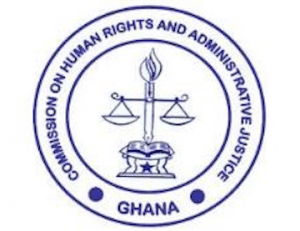Sober reflection needed on CHRAJ’s work – Australian High Commissioner
 The Australian High Commissioner has praised the roles of human rights institutions and the defenders of such rights as the world celebrates the Human Rights Day.
The Australian High Commissioner has praised the roles of human rights institutions and the defenders of such rights as the world celebrates the Human Rights Day.
Mr Andrew Barnes, the Commissioner, said the important role of such rights bodies and individuals in advancing civil rights and promoting equity in societies cannot be understated.
He, however, urged Ghanaians to take opportunity of the Day to reflect on the critical work being done by Ghana’s Commission on Human Rights and Administrative Justice (CHRAJ).
“To all human rights defenders and national human rights institutions working for stronger societies–we thank you for your tireless efforts to defend our rights,” he said in a statement copied to the Ghana News Agency on the commemoration of the Day on December 10.
“May you continue to be beacons of human rights for us all,” Mr Barnes said in reference to the topic, “A beacon of Human Rights – promoting stronger institutions and capacity building.”
He said: “I would like to ask Ghanaians to take the opportunity today to reflect on the critical work done by the CHRAJ, and to consider the vital importance of ensuring such an institution is allowed the necessary condition to perform its work to a high standard.”
Human Rights Day is celebrated on December 10 every year in honour of the adoption of the Universal Declaration of Human Rights by the United Nations General Assembly.
“We celebrate [the Day] under the Presidency of former Australian Foreign Minister Dr H V Evatt, in 1948,” he said.
Human Rights Day is also the final day of the 16 days of activism against gender based violence, which begins on November 25, the International Day to End Violence Against Women.
Mr Barnes said such activism seeks to demonstrate that no matter where “we live, we are entitled to the most basic fundamentals of being born free and equal in dignity and rights, with the right to life and liberty amongst others.”
Australia prides itself as a champion of Human Rights, he said adding that, “We were one of eight nations to draft the original declaration that we now commemorate on Human Rights Day.”
“We were also a founding member of the United Nations and we believe that all states should be treated equally, no matter their size. “
He said: Next year we will contest for election to the United Nations Human Rights Council, in an endeavour to advance human rights in five vital areas: gender equality; good governance; freedom of expression; the rights of indigenous peoples: and strong national human rights institutions and capacity building.
“[On] this Human Rights Day I want to take the opportunity to honour the unsung heroes in the defence of human rights: National Human Rights Institutions (NHRI).
“Although perhaps a less trendy aspect of human rights promotion, NHRIs are at the forefront of defending the rights of citizens around the globe.
“NHRIs independently monitor the effective implementation of international human rights standards, by providing feedback to governments and the international community, as well as offering a way for citizens to air grievances.”
The Paris Principles of 1991 – adopted by the UN General Assembly in 1993 – identified six criteria that national human rights institutions should meet in order to be effective.
This includes: a clearly defined and broad-based mandate based on universal human rights standards; autonomy from government; independence guaranteed by legislation or the constitution; pluralism, including membership that broadly reflects their society; adequate resources; and adequate powers of investigation.
Ghana, a signatory of the Universal Declaration of Human Rights, has its own NHRI in the form of CHRAJ established in 1993.
The Commission is mandated to promote and protect universal human rights and freedoms which include civil, political, economic, social and cultural rights.
Every person who comes before the Commission is offered free services and the opportunity, Mr Barnes said “to present his or her case through a process that is fair, just and transparent.”
Source: GNA
